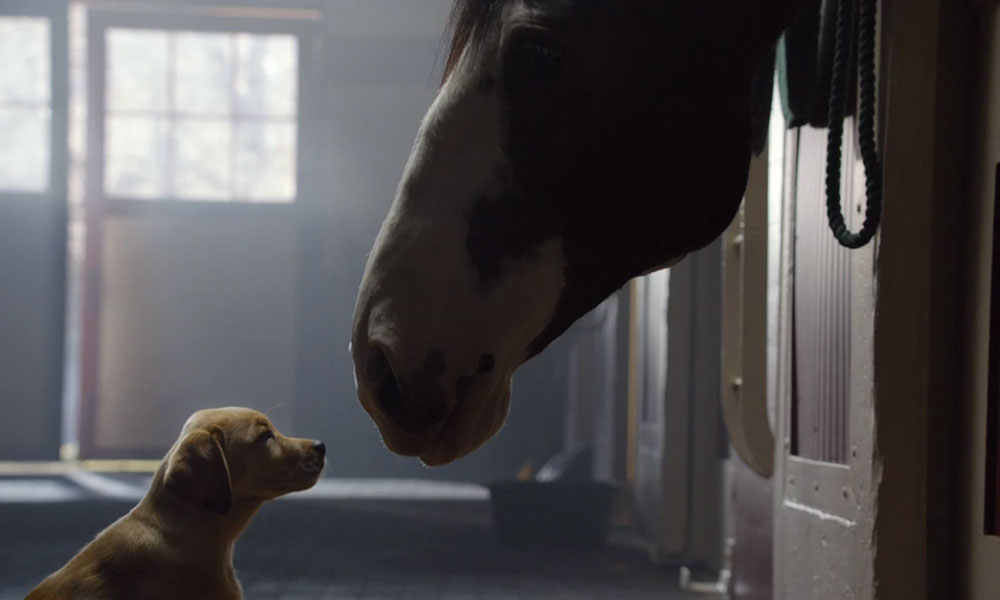
What Makes a Video Shareable Online?
According to a new white paper analyzing this year's Super Bowl ads, the things that work well on TV don't necessarily translate to the the viral web.
What grabs television viewers isn’t the same as what makes something go viral online.
That’s the finding of “The Science of Sharing,” a new study by Unruly, a marketing company that spent a little time digging into the ads from the most recent Super Bowl and, in the process, pulled out a few insights about how the viral web works. Among the findings:
Advertisers who want to use humor as the driving force of their ads need to make their spots laugh-out-loud funny.
You don’t need a big star to succeed: The Super Bowl has long been the domain of big-name celebrities, with faces such as Oprah Winfrey, Clint Eastwood, and Betty White creating buzz around the brands for weeks after the event (and in the case of the latter, driving a career comeback for the star). But despite a glut of celebrity-studded ads during this year’s event, just three of the 12 most-shared Super Bowl ads (and one of the top five) featured a celebrity. “In other words, featuring a celebrity does not make an ad more intrinsically shareable,” the study states. “This pattern is not only restricted to the Super Bowl.” The most popular celebrity-driven ad of the night, a Budweiser commercial featuring an average guy on a star-studded night out, featured Reggie Watts, Don Cheadle, and Arnold Schwartzenegger, among others.
Focus on emotions and motivations: Another Budweiser ad—far and away the most popular in the study—offers a case study in how emotions drive sharing. “Puppy Love,” featuring a platonic love affair between a Clydesdale horse and a puppy, had earned more than 50 million views on YouTube as of this writing, all by tugging at heartstrings. “Advertisers need to pack an emotional punch and make viewers feel something strongly,” the white paper states. “Mid-intensity responses do not drive sharing or deliver earned media.” Likewise, the study notes that there has to be a motivation to share the content—in fact, the more motivations, the better: “Viewers must experience strong psychological responses for the content to be worth the sharing effort.”
Funny isn’t everything: The Super Bowl is famous for its funny, offbeat ads, but the ones that drew the most response—such as Coca-Cola’s diversity-focused “America is Beautiful” ad—skipped the jokes and instead went for something a little deeper. That’s not to say an ad can’t be effective and funny, but Unruly argues that “humor is the most commonly deployed psychological response, the hardest to do well, and the most culturally sensitive,” making it a challenge to pull off effectively. “Advertisers who want to use humor as the driving force of their ads need to make their spots laugh-out-loud funny,” the study adds. (For an example of an ad that pulled off the trick, check out Audi’s “Doberhuahua” segment, above.)
Timing and distribution matter: Advertisers used different strategies for releasing their multimillion-dollar ads to the world, and those that chose poorly felt the effects. Part of the problem is that this year’s Super Bowl was a blowout that started early in the game and left little suspense about the outcome. This meant many of the ads that ran later in the game failed to connect—especially for advertisers who had not pre-released their ads. In fact, as the study notes, some of the ads—particularly the Budweiser “Puppy Love” commercial—actually had their traffic surge days before the game. “Distribution strategy turned out to be highly significant for this year’s Super Bowl,” the study states. “Releasing ahead of the game helps an advertiser hedge its bets on game day, and allows for a second viral peak boosted by the publicity of appearing in the game’s broadcast.” The ad that ranked the lowest in the study, Butterfinger’s “Cups” (above), was released the night of the Super Bowl and failed to generate much consumer interest.
The full study is available on the Unruly Media website.
Budweiser's "Puppy Love" ad was the biggest viral Super Bowl ad this year—and it did it without a single joke or celebrity. (YouTube screenshot)






Comments